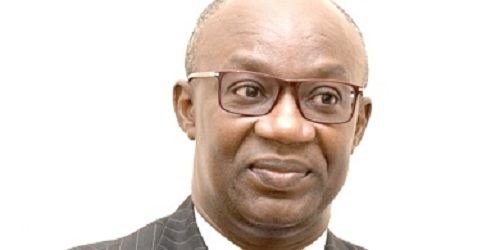A chartered accountant and corporate governance expert, Dr Valentin Kwasi Mensah, has attributed political patronage and blind loyalty to authority as part of the challenges impeding the country’s transformational growth.
“Our culture of blind loyalty and unquestioned obedience to authority has led to patronage and clientelism. If we have this system as the rule rather than the exception, then we have a problem,” he said.
He was delivering a lecture organised by the Institute of Chartered Accountants, Ghana (ICAG) yesterday (Tuesday September 9,) on the theme: “A critical Appraisal of Ghana’s 1992 Constitution from an Accountant’s Perspective: Contribution for Amendment.
No lessons
Dr Mensah, who is also the Vice Dean of the Faculty of Corporate Governance of ICAG, said the first President of the country, Dr Kwame Nkrumah, outlined the blueprint for economic transformation and development, but the country had failed to learn any lesson from it, leading to constant battle with poverty and underdevelopment.
According to him, during his Independence Day speech on March 6, 1957, Dr Nkrumah gave three key areas for economic transformation, which were hard work, attitudinal change and the capabilities to manage our own affairs.
“However, as a country, we have not made any efforts to change our attitude towards economic development, neither have we worked hard enough in order to develop,” he added.
He compared Ghana to Singapore, which was even worse in 1957, but had made tremendous strides in development, transforming from a third world country to a high –income country.
He attributed Singapore’s advancement to leadership which placed emphasis on meritocracy, pragmatism and honesty as a backbone to development.
Unfortunately, he said Ghana could not boost of these traits, but was rather doing the exact opposite disregarding Dr Nkrumah’s guidelines.
Poverty in the midst of plenty
Dr Mensah took time to explain how the numerous economic plans introduced by successive government failed due to numerous shortcomings such as mismanagement, corruption, attitude, and the lack of an effective long-term development plan
He mentioned some of the plans as Ghana Vision 2020 introduced by then President JJ Rawlings in 1995, the Ghana Poverty Reduction Strategy by then President John Agyekum Kufour in 2002 , the Ghana Shared Growth and Development Agenda (GSGDA) by President John Evans Atta Mills in 2010, and the Ghana Beyond Aid in 2019 by President Nana Addo Dankwa Akufo-Addo in 2019.
“Over the years, since independence, Ghana has prepared and adopted many plans and economic strategy documents inspired by various ideological perspectives. Almost all of them have not been well implemented and achievements have been wide off targets,” he added.
Dr Mensah was of the view that such inefficiencies in economic management and development had robbed the country of the transformation that would have lifted many people out of poverty and provided numerous opportunities for people.
“We continue to export primary commodities such as cocoa beans, gold and crude oil. At the same time, we import almost all our finished goods and a significant proportion of our productions inputs, he said.
Constitutional reforms
Dr Mensah further stated that the 1992 Constitution, which is the fundamental law of the land, although, had provided the framework for political stability for more than 30 years, ought to be improved to promote accountability, transparency and development planning.
For instance, he said, the constitution in its current form, has over -concentrated power in the Executive, weakened parliamentary oversight, and independent bodies, and rather promoted extreme partisanship.
“From the accountant’s perspective, there are many critical areas of the Constitution that require improvement regarding development planning, accountability, transparency, and financial governance,” he said.
Writer’s email: emma.hawkson@graphic.com.gh

